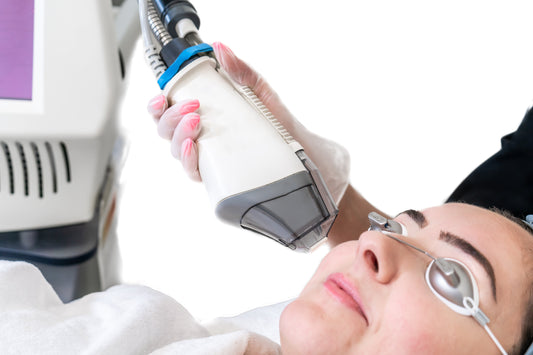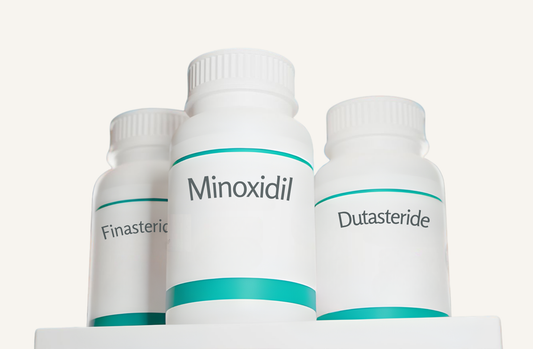Psoriasis is a chronic inflammatory disease of the skin. It is unclear if this is truly an autoimmune disease but it is clear that there is a genetic component. If your parents or siblings have psoriasis, you are more likely to have it than the general population. The overall prevalence of psoriasis is roughly 3% of the population, but sufferers have it to varying degrees. Patients with psoriasis are more likely to have diabetes, bad cholesterol, increased risk of heart attack and stroke. We designed MTXpert supplement to complement the treatment of psoriasis by a board-certified dermatologist.
What are psoriasis symptoms?
Unpredictable and irritating, psoriasis is one of the most baffling and persistent of skin disorders. It's characterized by skin cells that multiply up to 10 times faster than normal. As underlying cells reach the skin's surface and die, their sheer volume causes raised, red plaques covered with white scales. Psoriasis typically occurs on the knees, elbows, and scalp, and it can also affect the torso, palms, and soles of the feet.
- red, raised, inflamed patches of skin
- silver-white scales or plaques on the red patches
- dry skin that may crack and bleed
- soreness around patches
- itching and burning sensations around patches
- thick, pitted nails
- painful, swollen joints
Is psoriasis contagious?
Psoriasis is not an infection and therefore is not contagious. Touching the affected skin and then touching someone else will not transmit psoriasis.
What causes psoriasis?
-
Genetics: If you have an immediate family member with the skin condition, your risk for developing psoriasis is higher. However, the percentage of people who develop psoriasis because of genetic predisposition is small.
- Immune system: Autoimmune conditions are the result of the body attacking itself. In the case of psoriasis, white blood cells known as T cells create inflammatory mediators from an unknown cause. These mediators stimulate the skin cells to proliferate at an accelerated rate.
Infection may lead to flares in psoriasis. In a typical body, white blood cells are deployed to attack and destroy invading bacteria and fight infections. In a patient with psoriasis, there is overstimulation of the immune system that causes the skin cell production process to go into overdrive. The sped-up skin cell production causes new skin cells to develop too quickly. They are pushed to the skin’s surface, where they pile up.
Any psoriasis overview would be incomplete without noting the underlying
mechanisms of this conditions and the related issues. A combination of genetic predisposition and an extreme action of the immune system lead to these unsightly, uncomfortable and even painful conditions.
What makes psoriasis worse?
-
Stress: Unusually high stress may trigger a flare. If you learn to reduce and manage your stress, you can reduce and possibly prevent flares.
-
Alcohol: Heavy drinking or alcohol consumption can trigger psoriasis flares. If you binge drink or drink heavily, psoriasis outbreaks may be more frequent. If you have a problem with alcohol, talk to your doctor about getting help to quit drinking. Reducing alcohol consumption is smart for more than just your skin.
-
Injury: If you have an accident, cut yourself, or scrape your skin, you may trigger a psoriasis outbreak. Shots, vaccines, and sunburns can also trigger a new bout with the skin condition.
-
Medications: Some medications are considered psoriasis triggers. These medications include lithium, antimalarial medicines, and high blood pressure medication.
- Infection: Psoriasis is caused, at least in part, by the immune system mistakenly activating otherwise healthy skin cells. If you’re sick or battling an infection, your immune system will go into overdrive to fight the infection. This might start another psoriasis bout. Strep throat is a common trigger.
What are psoriasis types and complications?
The prognosis for most patients with psoriasis is good. While it is not curable, it is controllable. Recent studies show an association between psoriasis and other medical conditions, including obesity, diabetes, and heart disease, high blood pressure, kidney disease, etc.
-
Plaque psoriasis: Also known as psoriasis vulgaris, is the most common form of psoriasis, found frequently on the knees, elbows, lower back and scalp. People with scalp psoriasis generally have psoriasis on other areas of their body as well, but this location can be particularly frustrating because it can cause a dandruff-like appearance and may even lead to temporary hair loss.
- Guttate psoriasis: Unlike the large, raised lesions common with plaque psoriasis, guttate psoriasis is characterized by small dots and seen frequently in childhood or early adulthood. This form of psoriasis can be brought on by a case of strep throat.
-
Inverse psoriasis: Is also referred to as flexural psoriasis or intertriginous psoriasis. Body folds, such as behind the knee or in the groin, are the prime location for the smooth and shiny red areas of inverse psoriasis. In dermatology, it is commonly understood that this form of psoriasis probably occurs during an outbreak of plaque psoriasis somewhere else on the body.
-
Pustular psoriasis: The bumps of pustular psoriasis look like blisters or pimples but are actually filled with white blood cells. Often, people assume this is a contagious infection, but it is not. These pustules are usually surrounded by red skin and occur most frequently on the hands and feet.
- Erythrodermic psoriasis: Sometimes called exfoliative psoriasis, is the most severe of the psoriasis types, erythrodermic psoriasis is usually found in people with unstable plaque psoriasis. It is known by the wide, fiery outbreak and is accompanied by severe itching and pain. During an outbreak of erythrodermic psoriasis, skin often comes off in “sheets.” Only about three percent of people with psoriasis have this type of psoriasis, and it requires immediate medical attention because it can cause increased heart rate and body temperature changes. Some cases, particularly if left untreated, can lead to protein and fluid loss, shivering episodes, pneumonia and even congestive heart failure. Patients with more common types of psoriasis can develop erythrodermic psoriasis if they are rebounding from systemic steroids. This is the primary reason that oral or intramuscular steroids should not be used in psoriasis.
The point of psoriasis treatment is to control symptoms and prevent complications. Treatments depend on the severity of the condition. Please consult with a board certified dermatologist for the best treatment of your psoriasis.
What are the risks of psoriatic diseases?
Psoriatic diseases including psoriasis and psoriatic arthritis have an elevated risk of related conditions including cancer, cardiovascular disease, Crohn’s disease, depression, diabetes, metabolic syndrome, obesity, osteoporosis, uveitis (an inflammatory disease of the eye) and non-alcoholic fatty liver disease.)
What are treatments for psoriasis?
-
Oral medications: Oral drugs used to treat severe or stubborn psoriasis include retinoids, cyclosporine, methotrexate and other immunomodulators.
-
Biologics: These are by far the most effective agents in the tool kit for treating psoriasis. They are targeted antibody like molecules that tweak the immune signaling behind psoriasis. While they provide a very effect approach, they are not without risk and cost.
-
Topical medications: In addition to moisturizers, a variety of creams and ointments can be used to treat mild to moderate psoriasis. Moisturizers can also be combined with oral drugs or light therapy for more severe psoriasis cases. Topical options include steroids, vitamin D analogs, topical retinoids, and coal tar.
-
Light therapy: Natural and artificial light, including a specific form of ultraviolet light, can be used to treat psoriasis. The most recently developed therapies use narrow band ultraviolet B, which is effective without having to take medications that increase sensitivity to sunlight.
-
Diet and psoriasis: Omega-3 fats, found in fish, soy, nuts, seeds and some vegetable oils, may help limit inflammation and other symptoms of psoriasis. Avoid fish oil supplements if you take blood thinners, as they could increase your risk of bleeding. Eating fish at least twice a week will help you get enough omega-3 fats, especially if you choose fatty fish such as salmon, herring, tuna, mackerel, and sardines.
- Food Sensitivities: People with psoriasis are more likely to be sensitive to gluten, so a gluten-free diet may be beneficial in some cases.
-
Lose weight: Losing weight may reduce the disease’s severity. Losing weight may also make treatments more effective. It’s unclear how weight interacts with psoriasis, so even if your symptoms remain unchanged, losing weight is still good for your overall health.
-
Eat healthy: Reduce your intake of saturated fats, which are found in animal products like meats and dairy foods. Increase your intake of lean proteins that contain omega-3 fatty acids, such as salmon, sardines, and shrimp. Plant sources of omega-3s include walnuts, flaxseeds, and soybeans.
-
Avoid trigger foods: Psoriasis causes inflammation. Certain foods cause inflammation, too. Avoiding those foods might improve symptoms. These foods include red meat, refined sugar, processed foods, and dairy products.
-
Drink less alcohol: Alcohol consumption can increase your risks of a flare. Cut back or quit entirely. Talk with your doctor if you have a problem with alcohol.
- Consider taking vitamins: Some doctors prefer a vitamin-rich diet. However, even the healthiest eater may need help getting adequate nutrients. Ask your doctor if you should be taking any as a supplement to your diet.




